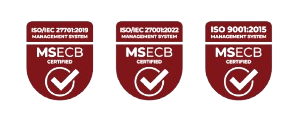PEPs, or Politically Exposed Persons, refers to individuals who hold prominent public positions or those closely associated with them. Due to their roles, a lot of PEPs are often involved in corruption and money laundering.
Money laundering is a serious financial crime, with Africa and the UK respectively losing an estimated $88.6 billion and over £100 billion annually. PEP screening is therefore a critical component of compliance with anti-money laundering (AML) and counter-terrorism financing (CTF) regulations in different markets.
How is PEP Screening Carried out in Africa and the UK?
According to Andrew Mitchell, the UK’s shadow foreign secretary, “About 40% of dirty money globally passes through London, with the money often stolen from Africa by bent politicians”. So, how does Africa and the UK manage Anti-money laundering and PEP checks?
For one, both markets abide by the Global Financial Action Task Force (FATF) guidelines, which mandates financial institutions to conduct enhanced due diligence (EDD) when dealing with PEPs. This includes thorough background checks and ongoing transaction monitoring.
However, there are still localized regulatory frameworks in these markets. For example, the Financial Sector Conduct Authority (FSCA) ensures compliance in South Africa. At the same time, the Central Bank of Nigeria (CBN) and the Nigerian Financial Intelligence Unit (NFIU) oversee compliance in Nigeria. Six hours away by air, the Financial Conduct Authority (FCA) plays a central role in the UK.
The compliance challenges are also different in these markets. African financial institutions may deal with high political interference, as seen in the case of the former Nigerian petroleum minister, Diezani Alison-Madueke, who was accused of embezzling billions of dollars during her tenure. On the other hand, UK companies have to ensure that PEP compliance guidelines do not infringe on political rights and access to banking services.
For example, Coutts, which is a private bank in the UK, closed the British Politician Nigel Farage’s bank account in June 2023, sparking significant debate about PEP regulations as Farage claimed that his political views influenced the decision. The goal for all markets is the same—to eliminate money laundering, corruption and terrorism financing.
What happens to organizations that have compliance gaps?
Financial Penalties Can Bite. Barclays, for example, was fined £2.4 million in 2018 by the FCA for lax PEP monitoring. Nigerian regulators are also cracking down on non-compliance, with institutions facing multi-million dollar fines for failing to identify and manage PEPs effectively.
Beyond the financial costs of regulatory sanctions, customers are increasingly savvy about compliance issues. One PEP scandal can end business relationships. Barclays’ issues led to intense public and regulatory scrutiny, with customers questioning the bank’s ability to protect its assets.
Not to mention the hanging implications for the country. “Illicit financial flows rob Africa and its people of their prospects, undermining transparency, accountability and eroding trust in African institutions,” said UNCTAD Secretary-General Mukhisa Kituyi.
According to the UN, preventing money laundering in Sierra Leone and investing the money in public health could save an additional 2,322 of 258,000 children from early mortality.
Concerned? Here’s how to conduct effective PEP screening to stay compliant.
First of all, don’t gamble with it. Effective PEP screening is not an option. In the past, most organisations relied on manual processes, with compliance teams combing through customer information and comparing it against PEP lists and databases.
This was time-consuming, tedious, and prone to human errors.
Now, there’s a better way. AI-powered solutions can quickly analyze massive datasets and process customer data in real-time, allowing faster PEP checks and client onboarding without compromising on regulatory compliance.
Seamfix offers a comprehensive PEP screening solution that stands out.
- We screen users against constantly updated global PEP and sanctions lists, keeping your organization compliant with the latest regulations.
- Our platform integrates various data sources, giving you a complete picture of potential client risks, across many markets.
- We offer real-time alerts for potential matches and provide detailed reports for full compliance.
- Our intuitive interface makes the screening process very seamless for your compliance team.
Let’s help you reduce your PEP risks today. Book a free consultation, and we’ll walk you through your compliance gaps and recommend the perfect solution at no additional cost.










